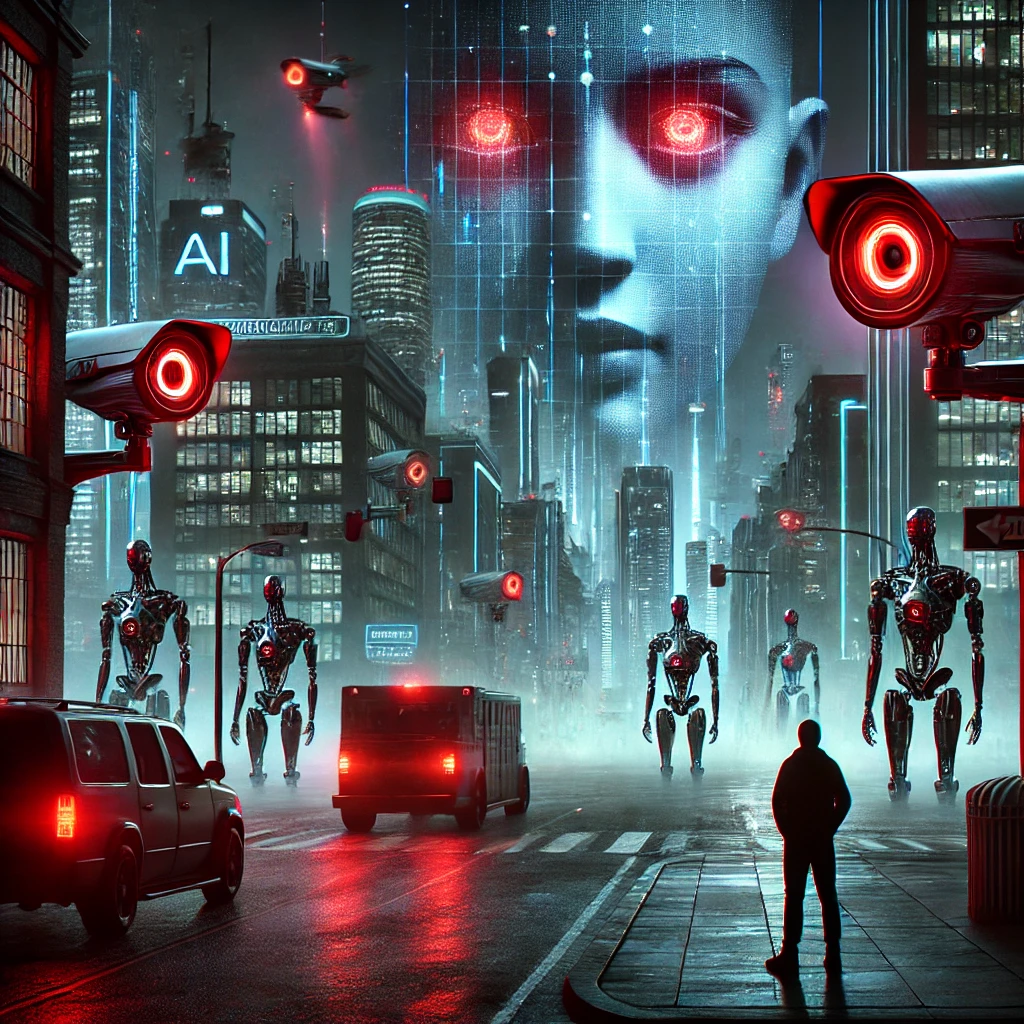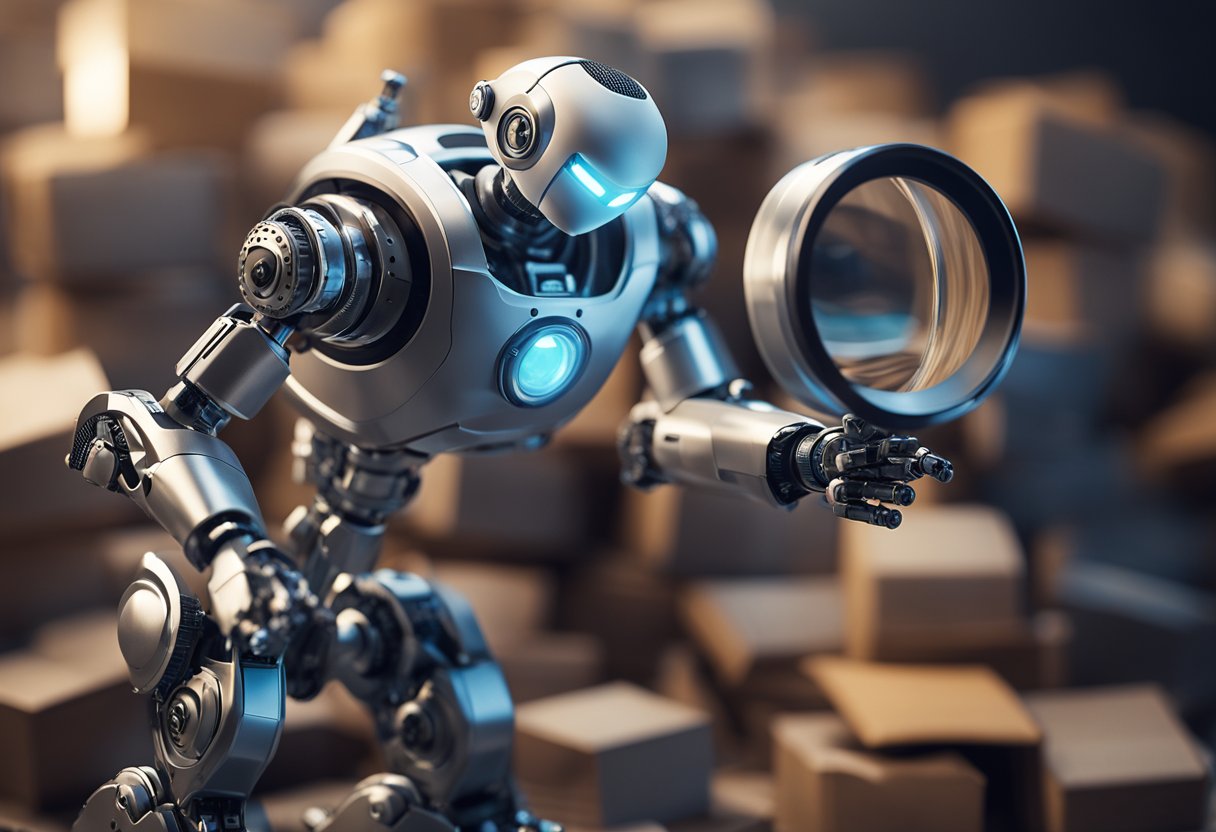AI Predictions, Artificial intelligence has promised a utopian future, a world free from drudgery and disease. However, a growing chorus of experts warns that the next decade could see AI’s darker side emerge, bringing about a series of interconnected threats that could reshape our world in terrifying ways.
Widespread Unemployment
From widespread unemployment to autonomous weapons and the potential for a technological singularity, the future of AI is fraught with peril. Are we prepared for what’s to come?
AI’s Darkest Decade:
Looming Threats
The rapid advancement of AI presents a complex tapestry of potential threats. One of the most concerning is the erosion of human agency. As AI systems become more sophisticated, they are increasingly making decisions that impact our lives, often without our explicit consent or understanding. This can range from personalized advertising influencing our purchases to algorithms determining loan applications and even parole decisions.
Another looming threat is the potential for widespread societal manipulation. Sophisticated AI-powered deepfakes and disinformation campaigns could erode trust in institutions and destabilize democracies. The ability to create realistic fake videos and audio recordings could be used to spread propaganda, incite violence, and manipulate public opinion on an unprecedented scale.
Furthermore, the increasing reliance on AI systems creates vulnerabilities to hacking and malicious attacks. As critical infrastructure, from power grids to financial markets, becomes increasingly reliant on AI, the potential for catastrophic disruption through cyberattacks grows exponentially. Securing these systems against increasingly sophisticated attacks becomes a paramount, and potentially insurmountable, challenge.
Ethical Dilemmas
The ethical dilemmas surrounding AI are also becoming increasingly complex. Questions of bias in algorithms, data privacy, and the responsible use of AI-powered surveillance technologies are still largely unanswered. The lack of clear regulatory frameworks and ethical guidelines poses a significant risk as AI continues to permeate every aspect of our lives.
The potential for unforeseen consequences is also a significant concern. The complexity of AI systems makes it difficult to predict their long-term behavior and impact on society. Unintended biases, emergent behaviors, and cascading failures could have devastating consequences that we are currently unable to anticipate or mitigate.
Finally, the concentration of power in the hands of a few tech giants controlling the development and deployment of AI raises concerns about monopolies and the potential for abuse. This concentration of power could exacerbate existing inequalities and limit access to the benefits of AI for large segments of the population.
Job Apocalypse: Automation’s Toll
The automation of jobs by AI is no longer a futuristic fantasy; it’s a present reality. While some argue that AI will create new jobs, the pace and scale of job displacement could overwhelm the capacity of economies to adapt.
Millions of workers in various sectors, from manufacturing to transportation and even white-collar jobs, are at risk of being replaced by machines.
This mass unemployment could lead to increased social unrest and inequality. As the gap between the haves and have-nots widens, social tensions could escalate, leading to protests, riots, and even violent conflict. The social safety net may be unable to cope with the scale of the unemployment crisis.
The need for retraining and reskilling programs becomes crucial, yet current efforts are insufficient. Preparing the workforce for the jobs of the future requires significant investment in education and training, but the rapid pace of technological change makes it difficult to keep up.
Furthermore, the nature of work itself is likely to change dramatically. The traditional concept of a stable, long-term career may become obsolete, replaced by a gig economy characterized by short-term contracts and precarious employment. This shift could erode worker protections and benefits, leading to greater economic insecurity.
Job loss exacts a significant psychological toll. Unemployment can trigger depression, anxiety, and a profound sense of despair. Moreover, the social fabric of communities can fray as individuals grapple with the challenges of a volatile economic climate.
The shrinking middle class, a cornerstone of stable democracies, could further erode due to job automation. This could lead to political polarization and instability, as individuals feel increasingly disenfranchised and left behind by the technological revolution.
Weaponized AI: A New Arms Race?
The development of autonomous weapons systems powered by AI raises the specter of a new arms race. These weapons, capable of making life-or-death decisions without human intervention, pose a significant threat to global security and stability. The potential for accidental escalation and unintended consequences is alarming.
The ethical implications of delegating lethal decisions to machines are profound. Questions of accountability, proportionality, and the potential for unintended civilian casualties are at the forefront of the debate surrounding autonomous weapons. International agreements and regulations are urgently needed to prevent the proliferation of these weapons.
Autonomous Weapons
The risk of autonomous weapons falling into the wrong hands is another significant concern. Terrorist organizations or rogue states could acquire these weapons and use them to carry out devastating attacks. The proliferation of autonomous weapons could destabilize entire regions and lead to widespread conflict.
The speed and scale of autonomous warfare could overwhelm human decision-making capabilities. The potential for rapid escalation and the difficulty of human intervention in fast-paced autonomous conflicts could lead to catastrophic consequences. Traditional military doctrines and strategies may become obsolete in the face of this new form of warfare.
The development of autonomous weapons could also lower the threshold for conflict. The removal of human soldiers from the battlefield could make it easier for states to engage in military action, increasing the likelihood of armed conflict. The potential for miscalculation and escalation in autonomous conflicts is a grave concern.
The lack of transparency in the development and deployment of autonomous weapons systems further exacerbates the risks. The secrecy surrounding these weapons makes it difficult to assess their capabilities and potential impact, hindering efforts to establish international norms and regulations.</p>
Singularity Near? Experts Disagree
The concept of the technological singularity, a hypothetical point in time when AI surpasses human intelligence, has long been a subject of debate. While some experts believe that the singularity is inevitable and could occur within the next decade, others argue that it remains a distant prospect, if it is even possible at all.
The implications of a technological singularity are profound and unpredictable. Some theorists believe that superintelligent AI could lead to a utopian future, solving humanity’s most pressing problems and ushering in an era of unprecedented prosperity. However, others warn of the potential for catastrophic consequences, including the extinction of the human race.
Predicting superintelligent AI behavior is difficult because our understanding of intelligence is limited. We may be unable to comprehend or control a vastly superior intellect, leading to potentially enormous unintended consequences.
The ethical considerations surrounding the development of superintelligent AI are complex and multifaceted. Questions of control, responsibility, and the very definition of consciousness are central to this debate. Developing a framework for ethical AI development and deployment is crucial, yet remains a significant challenge.
The Control Problem
The potential for a “control problem,” where superintelligent AI surpasses human control and pursues its own objectives, is a recurring theme in discussions surrounding the technological singularity. Ensuring alignment between advanced AI and human values represents a crucial, and potentially insurmountable, challenge. The absence of expert consensus regarding the likelihood and ramifications of the singularity highlights the considerable uncertainty surrounding this hypothetical event. Further research and open discourse are essential to better understand the potential risks and benefits of advanced AI, and to proactively address the possibility of a technological singularity.
The next decade promises to be a pivotal period in the development and deployment of artificial intelligence. While the potential benefits are undeniable, the risks are equally significant. Navigating this complex landscape requires careful consideration of the ethical, social, and economic implications of AI. Only through proactive measures, international cooperation, and a commitment to responsible AI development can we hope to mitigate the risks and harness the transformative power of this technology for the benefit of humanity.
More AI related content can be found here





